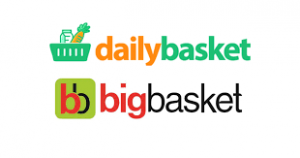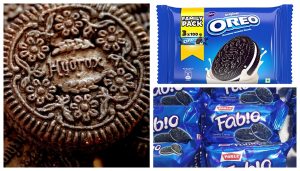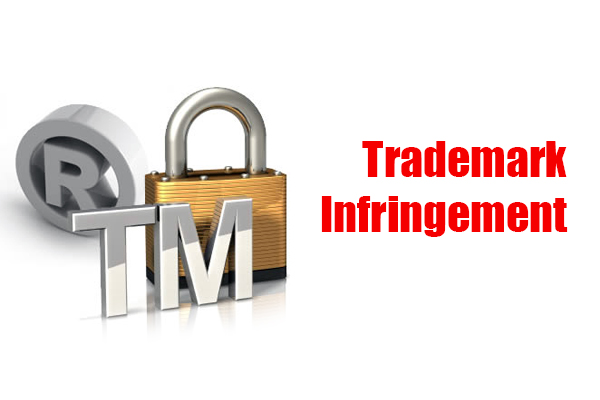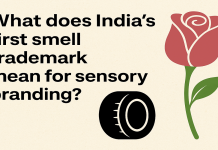This article is written by Ayush Sahay, pursuing a Diploma in Advanced Contract Drafting, Negotiation, and Dispute Resolution from LawSikho.com.
Table of Contents
Introduction
For a company in the 21st century, Intellectual Property Rights are extremely important. It is because a customer-company relationship is established on this basis that the customer tends to trust the products depending on the logo and packaging of the company. So, say if another company has just come up and their logo tends to be similar to an already existing brand or even if their tagline or packaging, (where the placement of logo and fonts are similar) then that company seems to have infringed the Intellectual Property of the other company. In this article, we are going to read about 2 such cases that have taken place in recent times and come under the umbrella of Trademark infringement but are not similar at any stage. These two cases are:
What is a Trademark infringement?
- Before we move on to learn about the above-mentioned cases let’s first understand, what a Trademark infringement is?
When another party who has not been authorised to use the Intellectual Property, more specifically a Trademark of a company/ business which is related to the service or product that the company offers, which could lead to confusion for the public at large at the time of purchasing that service or product, is called Trademark infringement. In India, the Trademark Act, 1999 governs, protects, and provides guidelines to every Trademark related case. The two cases mentioned above have parties suing the other party for Trademark infringements which has been discussed below in detail.
BigBasket vs. Daily Basket

Facts of the cases
In the case of BigBasket vs. Daily Basket, the self-proclaimed largest online food and grocery store in India went ahead and sent a cease and desist letter to Daily Basket which is a mere two-person bootstrapped startup having its functions limited to the city of Coimbatore. The cease and desist letter pointed out that “….the mere mention or reference of a name containing “basket” in word or logo form for any e-commerce business and related products conjure in the minds of relevant class of consumers and members of trade as that of being associated with our client (BigBasket).” What one can summarize from this letter is that according to BigBasket, the word Basket has become an integral and distinctive part of them and they tend to have a monopoly over the same.
But this is not possible, since Godrej’s Nature Basket that has been in business since 2005 way before BigBasket came into the business, has the word ‘Basket’ associated with it. Another possible question that one could ask is, how similar are the Trademarks of these two companies?
The logos of both these companies are different from each other and the colours, fonts, and graphics that have been used by both parties are way different from each other. This basically means that there seems to be no confusion between the two if their logos are to be kept next to each other in the legal domain and for the same to be proved in the public domain, Daily Basket has set up a URL https://bbisabully.com/ which states what the notice wants the company to do in more detail, a copy of the cease and desist letter along with a side-by-side comparison of the logos, the web-pages, the screen on a phone with the application open and how the play store information about the two are extremely different.
Laws involved in this case
Section 2 (1)(zb) of the Trade Marks Act, 1999
As per this Section, a ‘trade mark’ means, “a mark capable of being represented graphically and which is capable of distinguishing the goods or services of one person from those of others and may include the shape of goods, their packaging, and combination of colors….” The most important term here is ‘distinguishing’ since in the above case as already mentioned, Daily Basket has proved that there exists close to no similarities between the logos, etc. of the 2 companies.
The Trade Marks Act, 1999 Section 29 (2)
“Registered trademark is infringed by a person who, not being a registered proprietor or a person using by way of permitted use, uses in the course of trade, a mark which …..” In totality, it mentions that there should be no scope of confusion between the companies for a consumer.
The Trade Marks Act, Section 142
Allows for remedies against threats that have no ground to substantiate their case, which is sent either through advertisements, notices, letters, etc.
The infringement case seeming more like a trademark bullying case : analysis
This case, rather than an infringement case, seems more like a Trademark bullying case since BigBasket seems to be adamant to the point that it has a monopoly over the term Basket and also because this was not the first time BigBasket has sent out notices for the same, they have done this for other companies like Wow Basket, Smart Basket, Budget Basket, etc. and their strategy in all of these earlier cases has been found to be similar.
This act is done to show how overpowered corporations have become and the hunger to remain as a monopoly in a particular field has become quite high in recent times. Acts like the one of BigBasket is done to make sure small businesses who can make it large by time, shut down even before they start growing entirely so the present companies in power don’t have to face much competition later on. Though the market size, presence, profits, and popularity of BigBasket warrants the protection of their marks, such a warrant cannot be used for words like “Basket” which is a common word. A few sources state that BigBasket has decided to settle this issue out with Daily Basket over talks, this news is however not confirmed.
Modelez (Oreo) vs. Parle

‘Oreo’ a cookie manufactured by Modelez that is famous all over the world and India being its 4th largest market since 2011 when it was first introduced in the Indian market has begun to found itself in a legal tussle over trademark infringement, with Parle an Indian multinational company with the new product called the ‘Fabio’.
The similarities between the packaging of these two products are pretty evident, i.e. Fabio’s packaging is similar to that of Oreo which uses blue and white for the entire packaging over and above this Fabio’s cookies have the same engraving design that is present in Oreo cookies. Though it is normal for brands to market cookies that have cream in between them, while they sandwich them since there are many such brands and products already available in the domestic and international market but the point that is important here and is to be noted down is that according to The Trade Marks Act and the necessity for the resemblance to existing in order for confusion to arise for a customer exists in this particular case.
Taking a look at the appropriate legal provisions
- As per The Trade Marks Act, 1999 Section 2(1)(h) r.w. Section 11 tells us how there should be no confusion for a customer while viewing the 2 products and in this case, the packaging, colors, and product have similarities that will lead to confusion for the customer.
Analysis of Modelez vs. Parle with regards to the BigBasket vs. Daily Basket Case
The case, according to the author, does not qualify as a Trademark bullying case since there is no demand or self-proclaimed ownership over the usage of a term or a styling that can be as general as it can be. In this case, Modelez has only objected to what can be proved in the courts, and from a business point of view, for a country that holds to be a company’s 4th largest market, the company would definitely need to take steps that allow them to maintain a stronghold in the market. As far as the court’s opinion or decision is concerned, the Delhi High Court has stuck to hearing the arguments of both parties on the 12th of April, 2021.
Other such cases
A few other cases which are similar to the once mentioned above are given below with a gist of the facts of the case:
Starbucks vs. Sardarbuksh
Starbucks brought forward a suit against Sardarbuksh for using a very similar logo to that of Starbucks and using a name that gives a customer an impression of similarity between the two, leading to confusion. The judgment was in favor of Starbucks and the court directed the respondent to modify their name but nothing in regards to the logo since Starbucks had made changes to their logo. It was noted that the judgment pronounced also took into consideration the facts that the similarity in the names and logos had led to economic hurdles for Starbucks, which is a global brand present in the coffee business for a really long time due to which the company has accumulated goodwill and it was noted that the defendants were aware of this and did what they did in order to gather attention in the market at a faster pace.
Mitsubishi vs. Fiat
This case is from the U.K. court of appeals which involved 2 automobile companies, the Italian company, Fiat, and a Japanese company, Mitsubishi. On the grounds that the two markings were visually distinguishable, the court permitted the registration of the mark “Lancer” for Mitsubishi cars as opposed to “Colt Lancer” for Fiat cars. This case also puts down the basis on which one can determine the confusion for a customer, whether the confusion is real and proximate and not fanciful and remote. The court dismissed the appeal stating that “when considering the risks of confusion, the purchase of a car is not to be equated with an everyday purchase over a chop counter; a car is unlikely to be purchased over the telephone and that matter will usually be considered with care and advice……”
What do other brands copy from leading brands?
The brands that tend to work on the idea of using Trademarks or coming as close as possible to being able to use a similar Trademark to an already established brand because they wish to take advantage of the already existing tailor-made market population ready to consume the product they are producing. These brands if compared to the original brand would not be able to sustain themselves in the market unless they price their product at a cheaper price, quite cheap when compared to the original brand, which is exactly why these brands are able to sustain themselves.
Writer’s opinion
As per the author’s opinion, the acts of Trademark infringement are done as aforementioned to take advantage of the already existing customer base of the original brands and to take advantage of their goodwill since these infringements also create confusion for a customer at the time of purchase and say, for example, if a customer is in hurry and remembers the product from its way of packaging, they would rush into a store to buy Product X from Brand A but because they are in hurry, they end up purchasing Product X of Brand B, this helps the 2nd brand that has infringed Brand A’s trademark create its own customer base in a lesser time when compared to Brand A, which isn’t entirely wrong, but is what it is when they say “One shouldn’t play with fire” in this case fire being the ability of companies to being able to be at the brink of committing a Trademark infringement.
Conclusion
The idea of being able to find success through visible patches which in my opinion is the idea these companies try holding onto. In totality, the rights against Trademark infringement are used for the right purposes as well as for the wrong ones, the one thing that has stood out in this entire study is how Daily Basket decided to take it to the public using their website (https://bbisabully.com/) to show how sometimes laws are not being used for what they were meant to be used for and isn’t that what our job is, to make sure that the law is interpreted in the most appropriate manner.
References
- https://www.moneycontrol.com/news/business/oreo-maker-takes-parle-to-court-alleges-deceptively-similar-biscuit-report-6596611.html
- https://spicyip.com/2021/03/bigbasket-and-daily-basket-row-confusion-or-bullying.html
- https://www.soolegal.com/roar/can-two-trademarks-be-deceptively-similar-phonetically-or-visually-starbucks-corporation-v-sardarbuksh-coffee-co-ors-cs-comm-1007-2018-
- https://cleartax.in/s/trademark-infringement-india
- https://bbisabully.com/
- https://www.cnbctv18.com/retail/trademark-dispute-daily-basket-latest-rival-to-face-bigbasket-fire-8398401.htm
- https://www.soolegal.com/roar/can-two-trademarks-be-deceptively-similar-phonetically-or-visually-starbucks-corporation-v-sardarbuksh-coffee-co-ors-cs-comm-1007-2018-
- https://academic.oup.com/rpc/article-abstract/104/15/303/1580351
Students of Lawsikho courses regularly produce writing assignments and work on practical exercises as a part of their coursework and develop themselves in real-life practical skills.
LawSikho has created a telegram group for exchanging legal knowledge, referrals, and various opportunities. You can click on this link and join:
 Serato DJ Crack 2025Serato DJ PRO Crack
Serato DJ Crack 2025Serato DJ PRO Crack










 Allow notifications
Allow notifications


